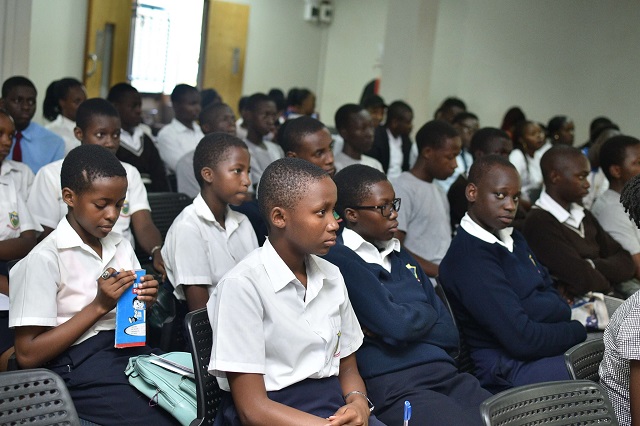
Kampala, Uganda | THE INDEPENDENT | As the National Curriculum Development Centre – NCDC moves to roll out the new lower secondary curriculum on February 17th, 2020, headteachers are raising several issues which they think should be addressed urgently.
Their ignorance of the new curriculum could easily be seen on Thursday during a meeting with NCDC officials. The meeting took place at the Uganda Manufacturers Association conference hall where the Senior Five school selection process is currently ongoing.
Headteachers who attended the meeting were not happy with the way the rollout of the curriculum was being carried out. They observe that in the normal situation they are the overseers of all activities taking place at school but with the new curriculum, they are just seeing ‘things flying’ and don’t know what role they have to play in implementing the new curriculum yet they have to supervise teachers.
According to this year’s school calendar, senior one students are reporting for their first term on Monday next week. However, the headteachers highlight that up to this time their teachers are still struggling to formulate schemes of work and lesson notes which they will base on during the teaching-learning process.
Amos Akahangiromutwe, the headteacher of Kazo Secondary School in Kazo district, says that headteachers are the first inspectors in school yet they don’t know what is happening. He asked NCDC to advise on how best they can inspect what they don’t know.
Johnson Katogole, headteacher St Agatha in Lubirizi district says that the four teachers who were trained from his school are still training their colleagues on how to manage the curriculum which exercise is also almost failing since some teachers have failed to help their colleagues in specific teaching areas.
The Ministry of Education picked four teachers from each school covering sciences, humanities, business, and vocations. The teachers were then expected to go and train fellow teachers on what they had learnt in each major teaching area. However, headteachers say that teachers who were trained have failed to train others. They intimate, they only know their areas.
A source from the education ministry who preferred anonymity that visited some schools, however, says that some teachers were not paying attention during the training.
“I visited some training centers but what I found there was worrying. Some teachers were not there to learn. They were not paying attention. At some centers, you would find that only four teachers out of 100 were paying attention to what they were being taught. I am worried to think of what will be in the schools,” he said.
Solomon Arineitwe, the headteacher of Ihubga-Mugyera Basin SS in Ntungamo district, notes that with the term beginning, they are yet to receive teaching materials which include the teachers’ guides and syllabus. His school is one of many private schools that are reported to have been ignored during the rollout process.
NCDC Executive Director Grace Birungi Baguma stresses that the process of sending materials to schools is underway and over the weekend they will have delivered the materials to the 29 curriculum training centers where schools will then pick them.
She, however, points out that they have been challenged by the high number of private schools that are overwhelming them. In normal circumstances, the government has not been giving out instructional and teaching materials to private schools but NCDC now had to cater to them.
Baguma says they are working hard to bridge the gap and also cater for the private schools that were not planned for. NCDC is planning to upload the material on its website so that schools can assess them in soft copy.
URN has also learnt that NCDC has not disbursed any material on elective subjects which include; Agriculture, ICT, Food And Nutrition, Literature in English, local language, foreign language, Technology and Design, Performing Arts, Art, and design. In the same development, headteachers do not know how schools will be deciding on what electives to teach.
Mary Solome Agoti, Headteacher St Mary’s Girls SS Madela in Soroti says the entire system of the electives is puzzling as they have been offering six and now the new circular requires four. She wonders whether the ministry has already decided the fate of teachers who have been teaching electives in which the schools are going to drop.
Other headteachers were also concerned about the lack of laboratories in schools yet the curriculum is supposed to be competence-based. They are not sure how learners will be able to practice what they were taught when they do not have a conducive environment to do so.
Benson Kule, the Commissioners Secondary Education, says that at the beginning of the week they are going to disburse a team of inspectors which will cover over 700 schools to find out what kind of teaching materials and equipment is needed. He adds that the ministry will base on the report so that they identify the needs of specific schools.
Despite all the critics from some headteachers, others praised the curriculum saying that it has been long overdue. Henry Achoroi, the Director of Studies at Nkuutu Memorial Secondary School located in Bugweri says the curriculum will produce better-equipped learners. He also advised officials from NCDC to receive criticism of the curriculum positively.
Although Parliament had halted the implementation of the curriculum in question on grounds that it was being rushed without adequate consultations of all stakeholders and harmonization on some key elements among other factors, the cabinet has since quashed their proposal giving green light to the Education Ministry.
Revision of the lower secondary curriculum beginning in 2007. The said curriculum was designed to reduce learners’ load by merging overlapping and repeated content and dropping irrelevant areas. The curriculum also emphasized competency-based learning as opposed to cramming.
******
URN
 The Independent Uganda: You get the Truth we Pay the Price
The Independent Uganda: You get the Truth we Pay the Price


